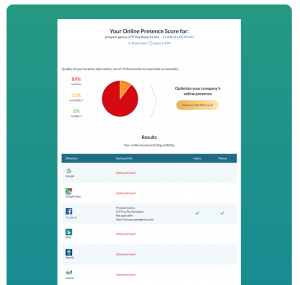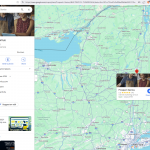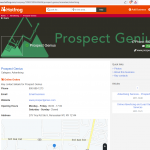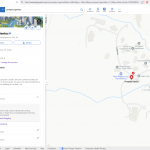If you’ve been running your business website for more than five minutes, chances are good you’ve gotten that email. You know the one—some helpful “expert” reaching out to let you know that your website is riddled with errors, broken links, and issues that are just begging for a free audit.
Sounds generous, right?
Yeah, not so much. Today, we’re putting this pesky scam under the microscope. Spoiler alert: that broken link they’re pointing to? It’s as fake as a $3 bill.
The Scam in a Nutshell
Here’s how it usually goes:
You get an email from someone claiming they ran a scan of your website. They found broken links, missing pages, or critical SEO errors. They even include a few URLs to “prove” their point.
Something like this:
“Hi! We noticed several errors on your website, such as this one: https://yourbusiness.com/advertising-services/flying-unicorn-repair. We’d love to offer you a free audit to help fix these problems.”
Looks scary at first, right? But there’s just one little problem:
That page was never supposed to exist.
Let’s Talk About Filing Cabinets
Let’s break this down with a good old-fashioned analogy: your website is like a filing cabinet. The structure of every URL on Earth is like this: https://file-cabinet-name/drawer-name/file-name
- The cabinet itself is your main website — for example, www.prospectgenius.com.
- Each drawer in the cabinet is a directory — maybe one drawer is for “Advertising Services” (/advertising-services/), another for “Testimonials,” and so on.
- Inside each drawer are your actual files — real pages, like “/GoogleAdsHelp” or “/LocalSEOTips.html.”
Now here’s where the scam comes in.
These scammers are acting like they opened your filing cabinet, went into the “Advertising Services” drawer, and couldn’t find a file called “Fire Truck Wheels.” And now they’re emailing you, panicked, like that’s some kind of huge problem.
But… that file never existed in the first place. You never made a page about “fire truck wheels.” Why would you? You run an HVAC business, not a firehouse!
Not All 404s Are Created Equal
Now, let’s be clear: some 404 errors ARE real problems.
If you run an appliance repair business and you do have a page about dishwasher repair, but the link in your website menu accidentally points to htttps://yoursite.com/dishwaser-repair (oops—missing the “h”), that’s a real broken link, and you should address it.
That kind of error confuses visitors, hurts your credibility, and can even hurt your rankings in Google. So yes, 404s can be important when they’re pointing to content that should exist.
But here’s the key difference:
- ✅ A real 404 is when a link is broken to a page that’s supposed to be there.
- ❌ A fake 404 is when someone just makes up a random page and acts like it’s missing on purpose.
The scammers in these emails? They’re not finding real problems. They’re just making up URLs, like: https://yourwebsite.com/advertising-services/sparkle-unicorn-parts…and then acting like it’s a big deal when your site says, “Sorry, that’s not a page.”
It’s like walking into your office, opening a random drawer, and complaining that it doesn’t contain a lasagna recipe. Sure, it could have one—but it never did, and it’s not supposed to.
Why This Matters
When someone types in a URL like: https://yourwebsite.com/advertising-services/lasagna-recipes and gets a “404 Page Not Found” error, that’s NOT a broken link. That’s just your website saying, “Hey, that file isn’t in the drawer.” Perfectly normal, because why would there be a page about “lasagna recipes” in the “advertising services” directory? Situation normal, no red flags here.
The scammers are hoping you won’t know the difference. They’re banking on you panicking over scary tech-speak like “errors” and “critical issues.” Then they’ll try to upsell you on expensive services to fix a problem that doesn’t exist.
What Should You Do?
- Don’t click anything in the email.
- Ignore the fake links they give you.
- Don’t be pressured into a “free audit” from someone you don’t know.
- Ask your real web provider (or someone you trust) if you ever have doubts.
And most importantly: trust your gut. If it sounds too dramatic, too urgent, or too helpful for a total stranger… it probably is.
Bottom Line
A fake page that never existed is not a sign your website is broken. It’s just someone trying to open a file in your cabinet that was never there to begin with.
So the next time a random “SEO specialist” tries to scare you with made-up URLs and nonsense errors, you’ll know better. Toss that email in the digital trash bin, and carry on knowing your site is just fine.
Want to keep your online presence safe and scam-free? Stay tuned for more in our ScamWatch series, because in the wild west of the internet, knowledge is your best line of defense.







